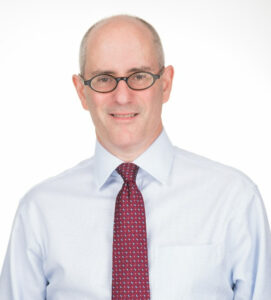“Scranton Joe” Biden is often touted as someone who connects with working people because, coming from a working-class background, he talks like they do. For that reason, we found it intriguing that he cited a term repeatedly during the State of the Union Address that none of our 13 Michigan swing voters had ever heard when we asked about it on February 14th. That term: “junk fees.”
In his speech, Biden described “junk fees” as “hidden surcharges too many companies use to make you pay more.”
We played a two-minute snippet during a pair of Swing Voter Project focus groups where Biden railed against “junk fees.” We wanted to know what these Trump-to-Biden voters—seven Democrats, two Republicans, and four Independents—thought of his advocacy for the Junk Fee Prevention Act.
We also spent time uncovering which kinds of fees they found legitimate and which ones not—and why.
Prior to showing Biden’s attack on “junk fees,” we asked all 13 which fees they believe are legitimate (with the number in parentheses):
- A fee for a late credit card payment (10)
- A fee for bank overdrafts (9)
- A fee for airline baggage (9)
- A resort fee at a hotel or resort (3)
- A fee for a family to sit together on a plane (2)
- A fee to switch cable/internet/phone providers (1)
- A service fee for tickets to sports or entertainment events (0)
Among these types of fees, respondents drew clear distinctions and didn’t lump them all together as “junk” the way the President did. Here’s what they said:
Bradley, 28, from Birmingham, explained, “If you’re a bank and you have millions and millions of customers and everybody is late, that’s affecting your cash conversion, so it’s costing you money. If you’re an airline and you’re putting more weight on the plane with additional baggage, that costs you fuel. If there’s a cost impact to the business, over time that’s going to negatively impact that business.”
“Some fees are my own fault, whether it’s the bank overdraft or if I miss a credit card payment, but for a family to sit together on an airplane – I’m traveling with my family,” remarked Adam, 34, from Saginaw. “Why would I not want to sit together?”
“If you’re supposed to be paying your bill and you pay it late, that’s kind of on you,” commented Valerie, 35, from Lansing. “That’s not their problem. I don’t mind them doing a fee for that. But if it’s just a bogus fee where it’s just obvious that, ‘We’re about the money. This is how we get an extra $15’ or whatever, that’s different.”
“[The fee is legitimate] if you’re getting a service, or if you’re getting space, or if you’re getting something from it,” added Sonia, 53, from Lansing.
Many respondents were doubtful that eliminating fees would benefit them. Eight of the thirteen thought that if a bank could no longer charge a fee for bounced checks, it would have to cut back on other products.
Nine thought it would be better if the government mandated disclosing fees rather than banning them.
Eleven agreed that when the government does away with things like credit card fees, airline baggage fees, and overdraft fees, they make everybody else’s prices rise because the cost of those services is now spread among all consumers.
Alex, 32, from Grand Rapids, explained, “Companies will get rid of that fee and be like, ‘Oh. I got rid of it to follow the law’ once that [law] passes and then they’ll be like, ‘Alright. There’s another area that’s not controlled. I can adjust this fee and maybe bump it up a dollar or bump it up here a dollar, and then bump it up there.’ They’re still making that money back. It would still be hidden. We just won’t know about it.”
“I think the companies are so used to getting these fees as income that they’re not going to want to lose income, so they’re going to try to get it in other ways,” remarked Russ, 45, from Grosse Pointe Woods.
It may be that President Biden is trying to insert a new conversation into American politics. But as our focus groups demonstrated, he has his work cut out for him.
_______________________________________________________________________________________________________________________
 Rich Thau is the president of the research firm Engagious, which specializes in message testing and message refinement for trade associations and advocacy groups. He is also the moderator of the Swing Voter Project, conducted in partnership with Schlesinger Group. Matt Steffee is vice president of research services at Engagious.
Rich Thau is the president of the research firm Engagious, which specializes in message testing and message refinement for trade associations and advocacy groups. He is also the moderator of the Swing Voter Project, conducted in partnership with Schlesinger Group. Matt Steffee is vice president of research services at Engagious.






